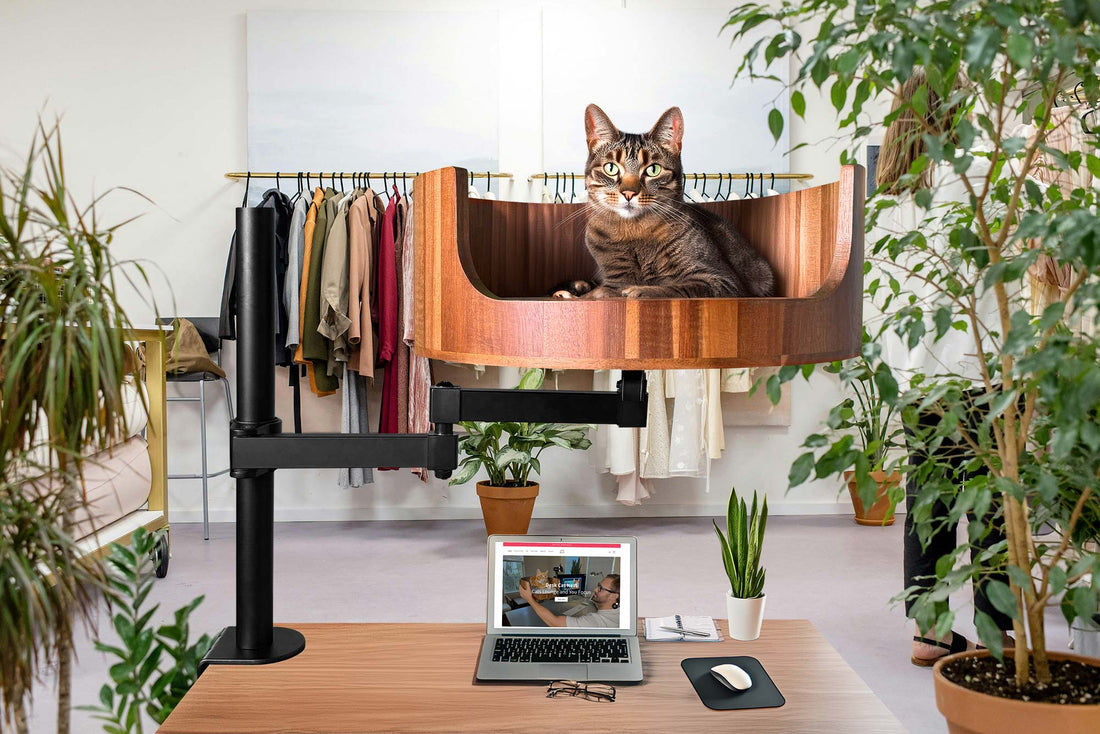
My Cat Ate a Moth: What to Do Next
Share
Desk Cat Nest is a popular online resource for cat owners seeking guidance on everything from behavior issues to health concerns. One common dilemma that many cat owners face is when their feline friends decide to indulge in a little insect snack, such as a moth. While it may seem harmless at first, there are important steps that should be taken to ensure your cat's well-being after such an incident.
In this article, we will explore the potential risks associated with cats eating moths, including the possibility of allergic reactions and intestinal blockages. We will also discuss the signs to look out for if your cat has consumed a moth, as well as what to do next to address any potential concerns. Additionally, we will provide tips on how to prevent future incidents and keep your cat safe from harmful insects. By staying informed and taking the necessary precautions, you can ensure that your cat remains healthy and happy, even after a little snack of a moth.
1. Monitor your cat for any signs of illness after ingesting a moth, such as vomiting or lethargy.
2. Moths can contain toxins or parasites that may be harmful to your cat, so it's important to seek veterinary advice if your cat shows any unusual symptoms.
3. Provide plenty of fresh water for your cat to help flush out any toxins from the moth.
4. Keep a close eye on your cat's behavior and appetite in the following days to ensure they are recovering well.
5. Consider cat-proofing your home to prevent future incidents of your cat eating potentially harmful insects.
Identify Potential Risks
It is important to consider the potential risks associated with your cat eating a moth. Moths themselves are not toxic to cats, but they can carry parasites or pesticides if they have been exposed to them. Ingesting a moth could also lead to a choking hazard if the wings get caught in your cat's throat. Keep an eye on your cat for any signs of distress or discomfort, such as coughing, gagging, or difficulty breathing.
Monitor Your Cat's Behavior
After your cat has eaten a moth, it is essential to monitor their behavior closely for any changes. Keep an eye out for symptoms such as vomiting, diarrhea, lack of appetite, or lethargy, which could indicate that your cat is having a negative reaction to ingesting the moth. If you notice any concerning behavior, contact your veterinarian for guidance on what to do next.
Prevent Future Incidents
To prevent your cat from eating moths in the future, you may need to take steps to remove moths from your living space. This could involve sealing up any cracks or openings where moths may be entering your home, using pest control methods to eliminate moths, or keeping your cat indoors during peak moth activity times. Additionally, providing your cat with plenty of toys and enrichment activities can help distract them from chasing and eating moths. Remember to always supervise your cat when they are playing with potential prey items to prevent any accidents.
Frequently Asked Questions
1. Is it common for cats to eat moths?
Yes, it is not uncommon for cats to chase and eat moths. Cats are natural hunters and may view moths as prey due to their small size and fluttering movement.
2. Can eating moths be harmful to my cat?
In most cases, eating a moth should not be harmful to your cat. Moths are not toxic or dangerous for cats to consume. However, if your cat has eaten a moth that was previously exposed to insecticides or other toxins, it could potentially be harmful.
3. Will providing a Desk Cat Nest prevent my cat from eating moths?
While a Desk Cat Nest can provide a cozy and comfortable space for your cat to nap and play, it may not necessarily prevent your cat from eating moths. Cats have natural hunting instincts and may continue to chase and consume moths even with a designated sleeping area.
4. How can I discourage my cat from eating moths?
To discourage your cat from eating moths, you can try using moth repellents in your home, keeping screens on windows and doors to prevent moths from entering, and providing plenty of interactive toys and activities to keep your cat engaged and satisfied. Additionally, you can try redirecting your cat's attention with treats or playtime when they show interest in moths.
In conclusion, opting for a Desk Cat Bed is a valuable choice for pet owners whose cats have a tendency to eat moths. Not only does this cozy and elevated bed provide a safe and comfortable space for your furry friend to lounge, but it also keeps them away from potential harmful insects like moths. By investing in a Desk Cat Bed, you can help prevent your cat from ingesting potentially toxic bugs, while also giving them a designated space to relax and unwind. Your cat's health and well-being will thank you for making this wise choice.



















































